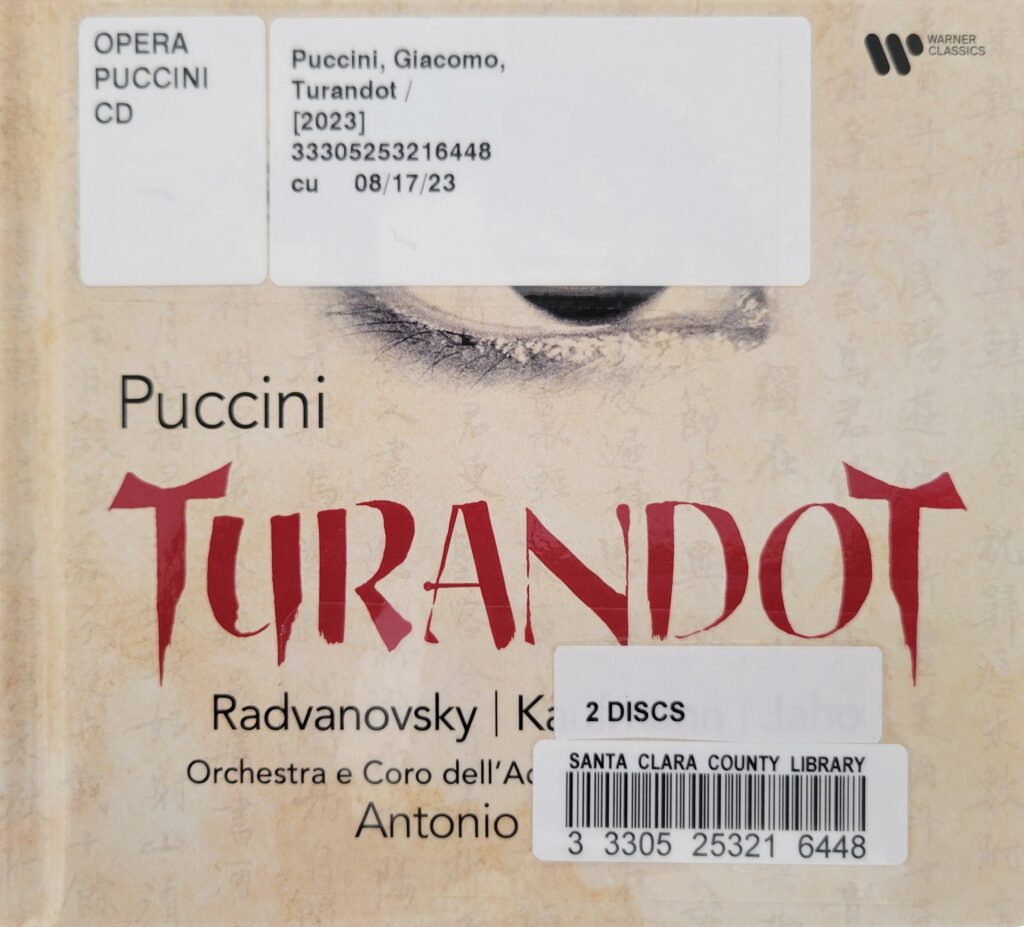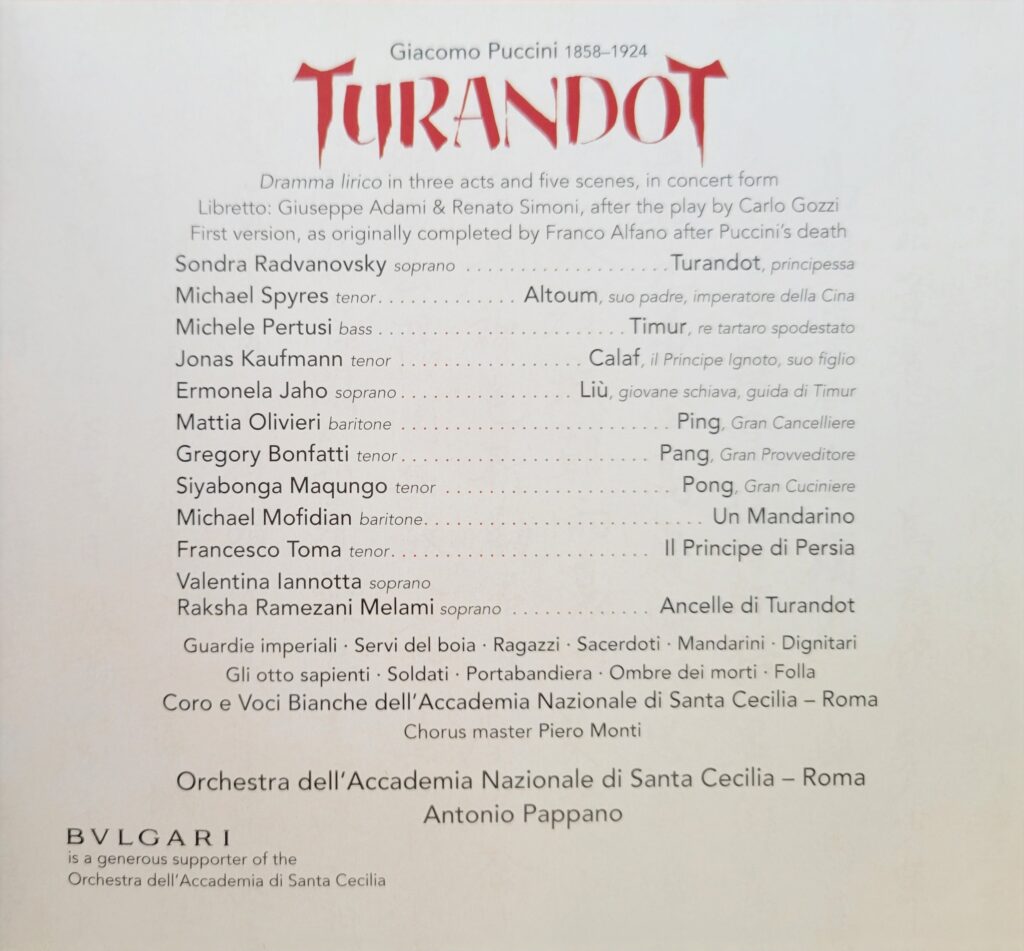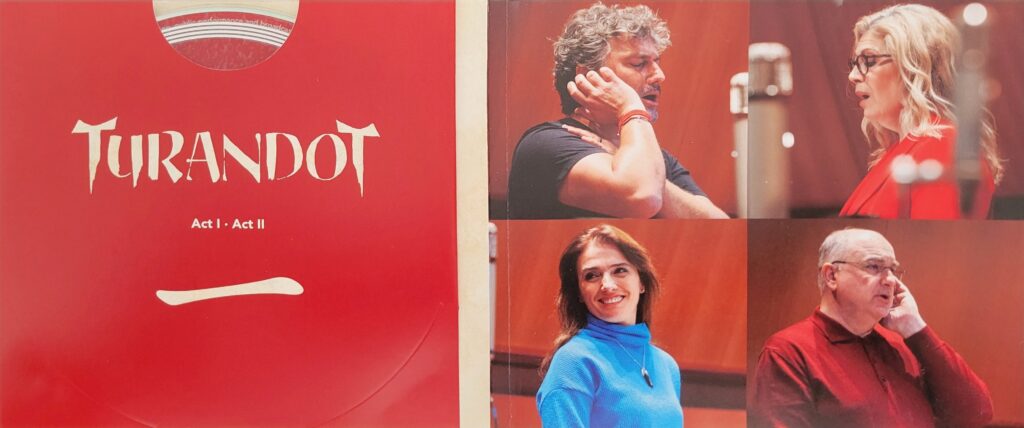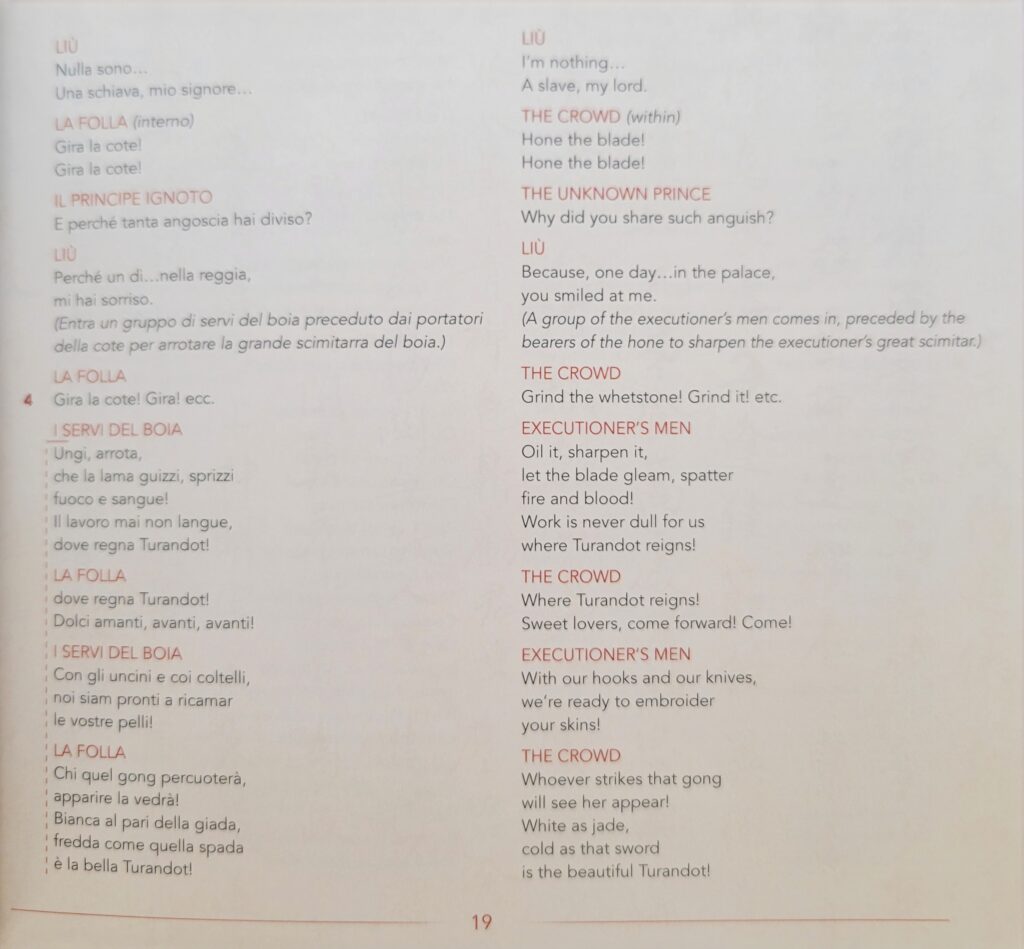I was finally able to get my hands on this long awaited Turandot recording from my library. Although I still prefer the 1972 legend Sutherland/Pavarotti recording better, this recording was still a “wow” moment for me. Stunningly beautiful! ![]()
Not even an amateur by any standard so just a few personal impressions. In my memory, this is the only “full” version of Turandot I ever heard which by itself brings a lot of freshness to this probably most recorded opera. Kaufmann has been in steady decline in the last ten years, his performance in this CD was OK but reconfirmed that – not sure why his voices is now on the darker side (compare to Pavarotti’s charming). The two female singers are the real assets for this recording, bright, brilliant and touching. This “full” version has more orchestral component and thus gave Pappano more room to shine. He nailed it but he also undoubtedly benefits from the advancement in digital recording as the latest major recording of Turandot – I am never a fan of Maria Callas (just can not tolerate the poor recordings from 50s).
I now have a digital copy so I can play in my Tesla too.
Update 5/11/2024:
I have spent last a few days listening both this version and the 1972 recording and now have a better understanding of the criticism toward Joho. It was hard to imagine the 1972 recording gathered so many super stars that were still relatively new at that time.
My LOVE to opera originated from a performance at Verona Arena. Unlike any other opera, my love to Turandot is special and multifaceted. One is certainly Nessun Dorma, whenever I hear the music I have an imagination of countless of fireworks blooming and shining in the dark sky. I had it as my ringtone for a long time before it was taken over by Canon; the other is due to its deep root from Chinese children song “Jade Flower”, (Là, sui monti dell’Est) repeated countless times; and the other and probably the most important is the character of Liu.
For the entire opera, the only respectable human being to me is Liu (sorry Turandot and Calaf lovers). She is kind and selfless. My heart is always broken when she sings “Signore, ascolta!” for her unrequited love. Her joys of love is the ultimate sacrifice for her love. Joho’s voice is less glamorous than Caballé’s, but soft and beautiful, which to me is a more appropriate reflection of Liu’s feeling: desperate, sad, but at the same time feeling belittle as a slave (thus also the tremble in her voice). I am infatuated with her “Signore, ascolta!”.




Leave a Reply